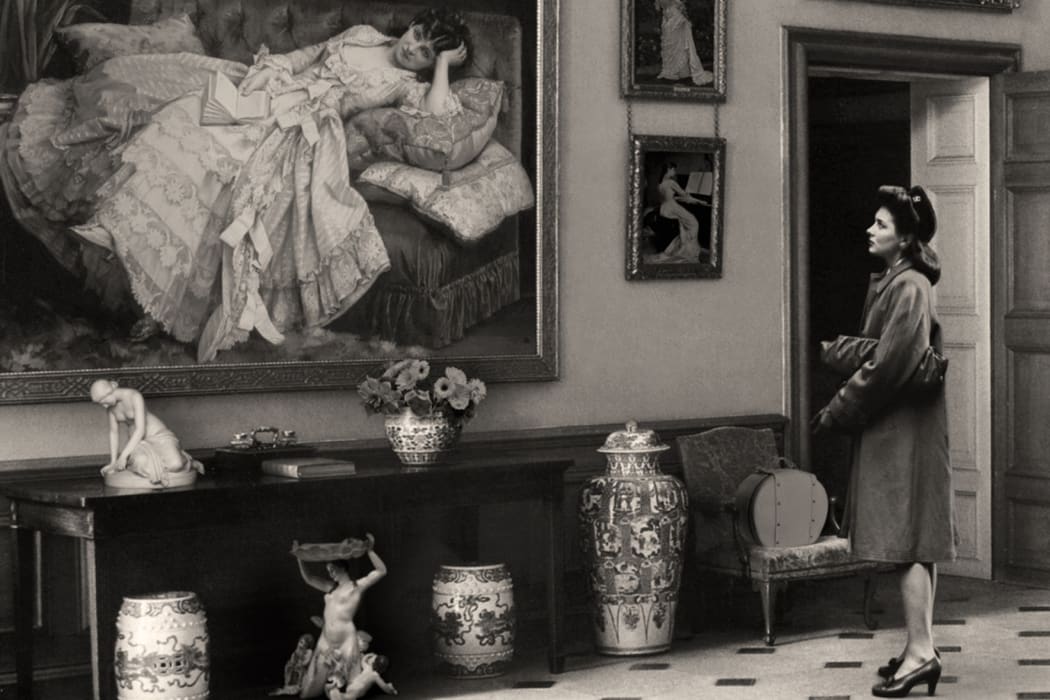
This Easter I found time to read How to Do Nothing by the American writer and artist Jenny Odell. With an extremely appealing title for a holiday, it is the subtitle Resisting the Attention Economy what specifically interested me most. Much has been written about our obsession with productivity and profit, but not so much about the consequences of the exhaustion produced by it. Bifo talks about the psychotic collapse of the Western mind, particularly after the pandemic; of the difficulty of an encounter between bodies, with an organic time and space in which to be able to think in common horizons of equality, or even of rebellion and protest.The imagination slows down and the body politic is paralysed in what he calls psycho-deflation*. As our body disappears, so does our capacity to empathise and pay attention to the other. I think of the difficulty we have shared with many people lately when writing, and also of a subject that has haunted me since I started teaching, which is the famous attention span and the lack of concentration in the younger generations. Odell explains how the commercial logic of social networks and their financial incentive keeps us in a state of anxiety, envy and continuous distraction. We are already living in the consequence derived from the 24/7 that Jonathan Crary referred to: the loss of our cognitive capacities due to extreme exhaustion and precariousness. The interesting thing about the book is that it goes far beyond the issue of how to get enough mental space to be able to think freely. It transforms it into a political act, which allows us to think about other ways of living, relate to and even work together with other people. Ironically, this book does not urge us to do nothing, but to think of care and attention as an act of political resistance.
I would like to think that there are many artistic practices that precisely push these issues as far as they can. Either by giving value to this “doing nothing” or by putting us in front of a certain degree of sustained attention characteristic of more experimental disciplines. It is sad that for the majority of people the exhibition has become a place to have one's photos taken and the works of contemporary art a mere punch of an image or a phrase, as we know about exhibitions through Instagram, completely decontextualized. Can we reverse that and pay a little more attention? Odell explains that the power of expression and opinion arises precisely from having time, from getting out of that addictive capacity to which social networks–bombarded by a decontextualised and disordered present in which it is impossible to position ourselves properly–subject us. I remember Manuel Borja Villell, who, referring to the MNCARS (Queen Sofia National Museum Art Centre), said that museums should become places to be inhabited; I think of places where sustained attention is possible through the process of creation and community building.
A few days after I started writing this text, I contracted the famous COVID-19. Apart from being a common flu, and despite the body pain and fever, I rejoice at the idea of stopping. In this case people understand perfectly well the silence and the resulting cancellations. The rest of the family moves away and I am left alone. I have no coverage in the bedroom of my house, from where for a few days I am unable to leave. The internet connection doesn't reach me, and I never devoted myself, half on purpose, to putting in a repeater. So, I surrender to the “doing nothing” that I had so much longed for. First I sleep, then I watch the first birds of spring and finally I read fiction. An absolute privilege of which I am aware and which makes me empathise with all those people who have had to continue working and caring in this state.
Craving respite, I carefully choose readings that match my mood: Chantal Akerman's latest book, My Mother Laughs, translated into Spanish as Mi madre ríe, tells the story of her elderly mother's day-to-day life after having undergone surgery. Akerman occupies the bedroom next to her mother's, where she accompanies her in her convalescence and attempts to write. A faint, random laughter recurs at times as her daughter–Chantal–looks after her at her home in Brussels. A Holocaust survivor, Nellie Akerman's life is slowly fading away. Conversations are brief and memories are vague. Walks are short and meals are bland. Sometimes she laughs. Akerman's voice has something of Gertrude Stein in its simplicity, its repetitions, its sparse punctuation and paragraph breaks, in tune with this minimal, repetitive life, where almost “nothing happens”. But the caregivers come and go punctually and Akerman tries to write when she can, after having gone out shopping or for a walk with her. Once again, the filmmaker brings us closer to a type of work that, because it is not innovative and profitable, becomes invisible and precarious, mostly for migrant women.
I also think of the work of artists where the production process with organic materials or other kinds is fundamental. Works that are difficult to show in a photo. Attention and care towards others, the environment and natural rhythms are crucial to understand and respect our multiple contexts. I want to believe that our capacity for reflection allows us, among other things, to create worlds. Ideally fairer.
* “Resign”, FRANCO BIFO BERARDI, Eflux Journal #124 https://www.e-flux.com/journal/124/443422/resign/
(English translation: Beatrice Krayenbühl)

